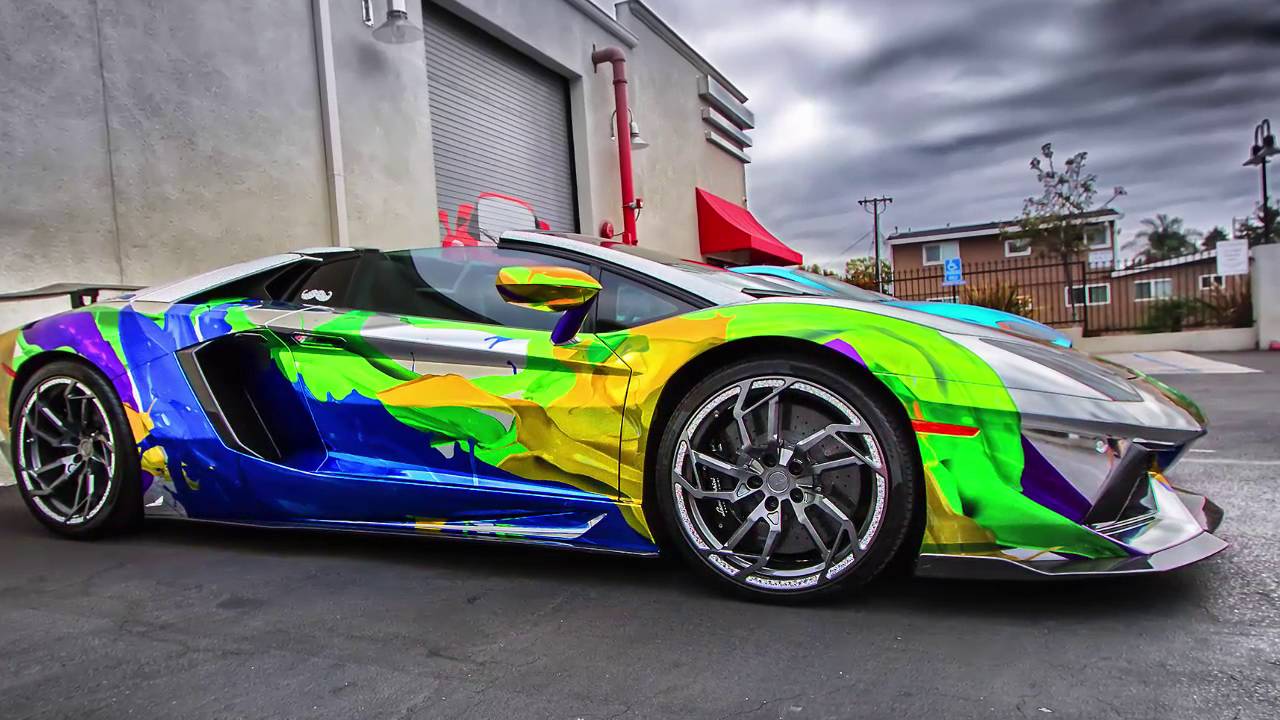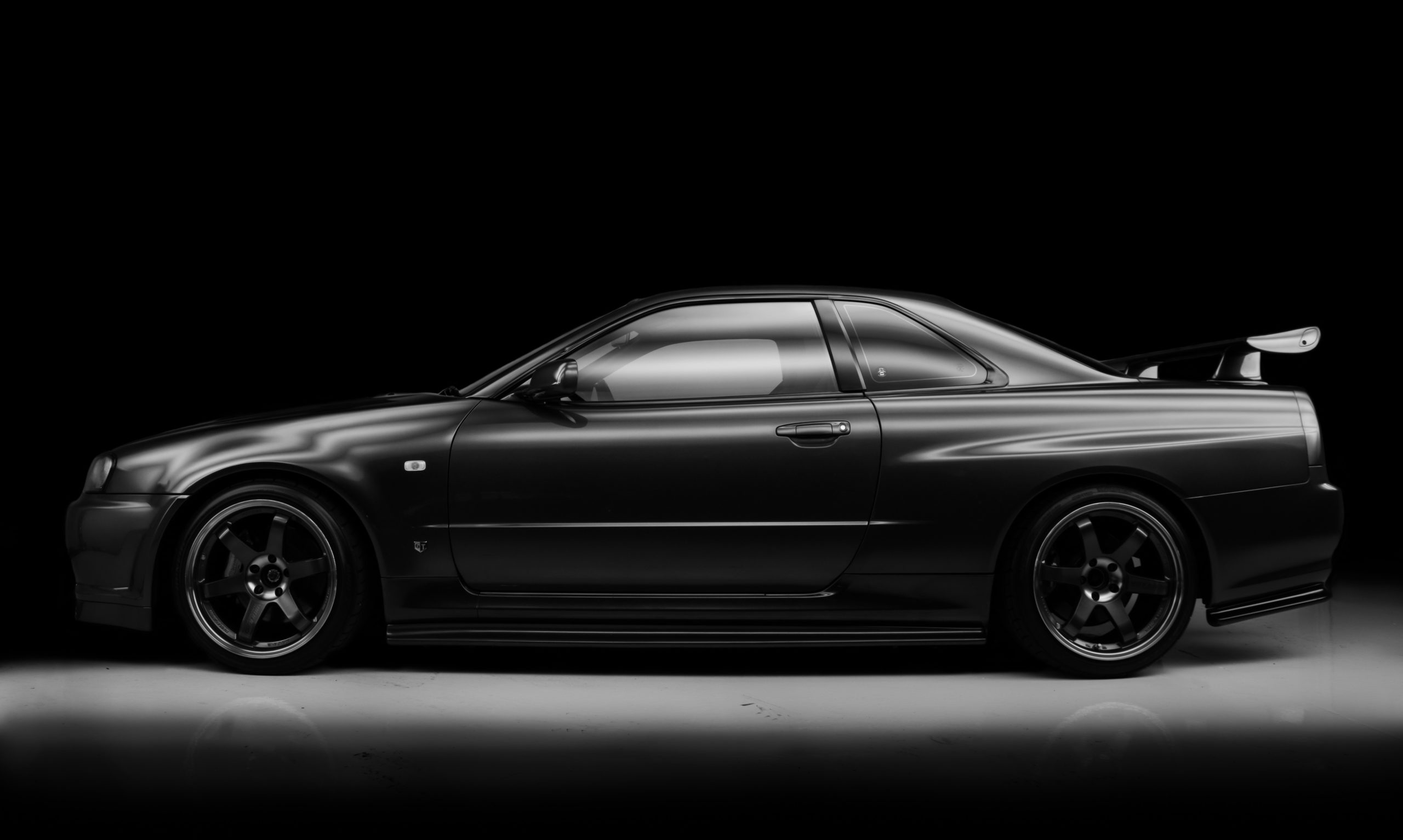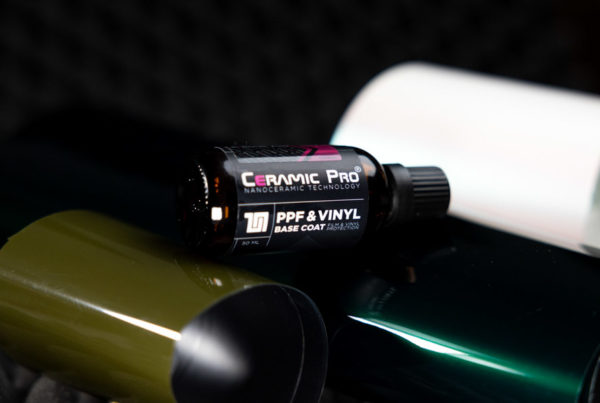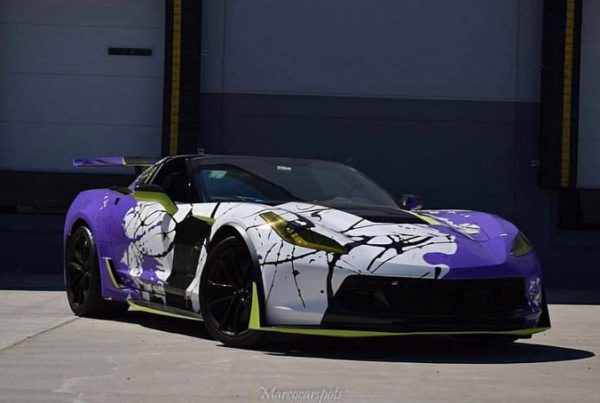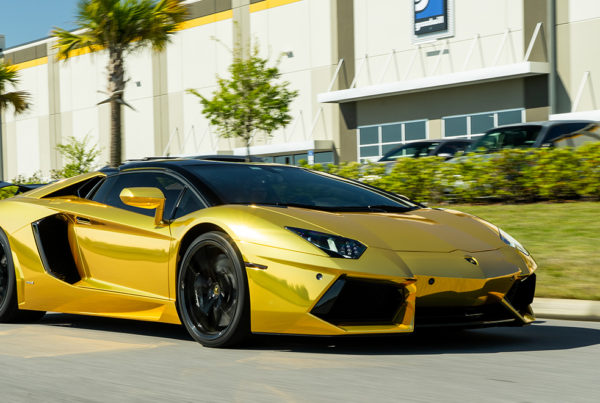Should I get My Car Wrapped or Painted? Breaking Down the Facts
There are several ways to protect the paint surface on your car, SUV, or pick-up. But there are not as many that can both decorate, advertise, and keep the surface underneath factory fresh. That’s the beauty of a car wrap. Although they’ve been around for quite some time, many vehicle owners often ask us, does a car wrap damage paint?
The truth is that a vinyl wrap or car wrap as some call it, is completely safe to be applied to any type of paint – whether it’s gloss or a matte finish. Made from ultra-thin vinyl materials, the car wrap is one of the greatest multiple-purpose paint protection products.
Businesses use them to advertise their business to local customers, while many privateers opt for the vinyl wrap for aesthetics or decorative enhancements. There are several benefits to applying a car wrap to your daily driver as well. Let’s break down some of the top questions about vehicle wraps, so you can make an informed decision.
What Are Car Wraps Made From?
There are several questions that are self-explanatory – mainly based on secondary description of a product. For example, a common name for a car wrap is vinyl wrap. Vinyl is the material that is bonds to a vehicle’s paint surface by way of a special adhesive that is activated by a water-based solution. However, the modern car wraps are much more complex than simply vinyl and glue.
Car wraps utilize a Poly Vinyl Chloride or PVC material. Plasticizers are added to the wrap – which produces the flexibility they produce. Pigments are added to the vinyl material to create a desired aesthetic look or appearance. This is where the term graphics comes into play when describing a car wrap.
There are several ancillary ingredients that help the vinyl car wrap protect the surface underneath. Heat stabilizers and UV absorbers are added to help block UV exposure from penetrating the car’s paint. Once the wrap is applied and bonded to the surface (whether it’ car paint, plastic trim, or moldings) the material becomes weather resistant.
Cast vinyl is another material that makes up a car wrap. This is an all-in-one manufacturing solution where all ingredients are placed into a ‘cast’ or mold, baked, and created. These wraps are more flexible and shrink resistant.
When is Wrapping a Car Recommended?
A car wrap can be applied at any time, and usually to any automotive surface including clear coats, plastic trim, fiberglass, and carbon fiber. The flexibility of application also expands creativity, as you likewise can customize the color, texture, and even the finish.
Many auto salons and car wrap experts suggest using this type of product under the following applications or situations:
Covering paint: It’s quite common for car owners to use a car wrap to cover or hide damage done to paint or to change the color of their vehicle. However, it’s important to note that the quality of the wrap’s adhesion is mainly determine by the smoothness of the base surface.
For visual appeal: The vinyl wrap is likewise suggested for those looking to customize the color or graphics applied to their vehicle. You can custom design a vinyl wrap to include specific colors, patterns, branding, or other enhancements. Plus, it’s possible to have everything on one sheet of vinyl or apply multiple layers of individual designs.
For advertising: Businesses large and small utilize a car wrap to brand and advertise their entity across city roads, highways, or any place you park. A car wrap can be customized for any sized vehicle or die-cut to match your brand – which provides you with an affordable advertising platform for logo-placement.
Motorsports: Whether you’re a rally racer or drive a 330 mph Nitro Funny Car, a vinyl wrap is a cost-effective way to create a custom-look that replicates a $30,000 paint job. Plus, your sponsors will love the quality in which their logo is proudly displayed. A vinyl car wrap is a great way to protect your race car’s exterior – especially those who off-road race.
Does the Car’s Paint Need to Be Fixed Before Installing a Car Wrap?
It’s a common myth that a car wrap can be used to cover up damaged paint. That’s just not accurate. For vinyl to bond correctly, the surface needs to be as flat and clean as possible. There is a proven prep method that produces quality results.
A decontamination car wash. This will strip any old layers of wax, grease, or surface contaminants from the car’s paint.
Clay bar treatment: If you really want the vinyl to bond well, the clay bar or clay mitt treatment is recommended. This will remove those tiny imperfections that become stuck in the clear coat such as brake dust, industrial fallout, pollen, and other tiny particles. This also removes stains from bird droppings, bug splatters, tree sap, and other contaminants.
Paint Correction: This one is open to discussion. There are some detailers and vinyl installers who’ll argue that you don’t need to complete paint correction (or polish scratches or imperfections from the clear coat), and some who swear it makes a difference.
Before taking the plunge into vinyl wraps, make sure to seek out the advice of a few professional installers – so you can gather all the pros and cons to make an informed decision.
What Kind of Vehicle Wrap Design Can You Do?
Actually, the sky is the limit with vehicle wrap designs. You can create custom graphics on vinyl vehicle wraps, change colors, patterns, insert logos, or anything you can imagine.
Individual vinyl decals can be added to spice up the look and feel of your ride. It’s also possible to do a partial wrap, which is where you only apply the material to certain parts of the factory paint.
The fact is that car wrapping is the most flexible and affordable way of changing the visual appeal of your ride.
How Long Does a Vehicle Wrap Cost?
Just like any other paint protection product, there are several variables that impact the longevity of a car vinyl wrap. The main is exposure to UV rays or specifically, direct sunlight. While modern vinyl is infused with UV protective ingredients or materials, there is only so much they can absorb before damage begins to occur.
Other outdoor elements can likewise impact how long the car wrap will last including:
Exposure to cold and snow: Cold weather and most vinyl materials are not copacetic. While they can handle snow and exposure to below freezing temperatures, constant exposure can accelerate wear and tear.
Exposure to hot weather and blowing sand: The desert and hotter climates can also cause havoc on vinyl materials. Blowing sand likewise can cause pitting and minor imperfections on a car wrap.
Excessive rain: A vinyl wrap is water resistant – not waterproof. Those living in tropical or wet weather regions should find ways of reducing continual exposure to rain.
How to Protect a Car Wrap from Exposure?
Looking at the items above, it’s logical to assume that the best way to reduce damage to a car wrap is to keep your ride stored indoors. However, not everybody is blessed with a garage. Further, continual driving in harsh conditions can accelerate damage.
One of the most proactive ways of keeping a car wrap as protected as possible is having the vinyl installer add a ceramic coating. A nano ceramic coating like Ceramic Pro 9H is formulated to bond to materials or substrates that are porous in nature and are solid. A car wrap qualifies.
While there are several cheaper DIY ceramic coatings that claim to “work” on vinyl wraps, they are not specifically formulated for this type of material. This results in inconsistent application, short lasting results, and many upset customers of car wraps.
A professional ceramic coating will be formulated for individual materials – including vinyl used in car wraps. The formulation allows the vinyl to maintain flexibility and will bend with the surface, which means that the coating will not crack.
When you apply a ceramic coating to a vinyl wrap you’ll provide a 9H hardness of protection that protects the material from exposure to heat, cold, snow, rain, blowing sand, chemicals, road grime and salt, along with toxins like bird droppings, bug splatters, and more.
How Much do Car Wraps Cost?
The car wrap is a smart way to spice up the flavor of your ride – without having to spend money on a new paint job. Ultimately, you’ll have to decide if the cost of a vinyl wrap makes sense to accomplish what you’re trying to do.
If you’re looking to protect the entire vehicle with a wrap, you’re looking at a minimum of a $3,000 investment. There are some chrome car wraps that can approach $10,000 for a complete pick-up or full-size SUV. Most of the time, the cost of the wrap is conditional based on the type of material used, the amount of prep work needed, the customization of the wrap, and labor needed to correctly apply.
Some vehicles are simply easier to wrap than others. For example, a two-door sports car has less surface area, and fewer doors than a full-sized sedan. Doors represent a challenge with vinyl – as the material needs to be custom fit for those tight-fitting creases and panels. However, you’ll also have to factor any paint correction or repairs needed to apply the vinyl wrap.
Breaking it All Down
A car wrap is a fantastic way of changing the overall look of your car, truck, SUV, motorcycle, or racecar – without having to pay to repaint it each time. While there are many pros and cons to consider, in the end, it’s critical to make sure any vinyl wrap you choose is going to accomplish what you’re looking for – at a price you can afford.
It’s becoming more common for car owners to apply a nano ceramic coating on top of their vinyl wraps, which provides a slew of advantages including making it sheet water easily, simplifying the cleaning and washing process, and producing exceptional depth of the wrap.
If you’re considering a car wrap, and would like to speak with a local auto salon that specializes in advanced paint protection solutions including PPF, ceramic coating and car wraps, click the link below to find an auto salon near you.



